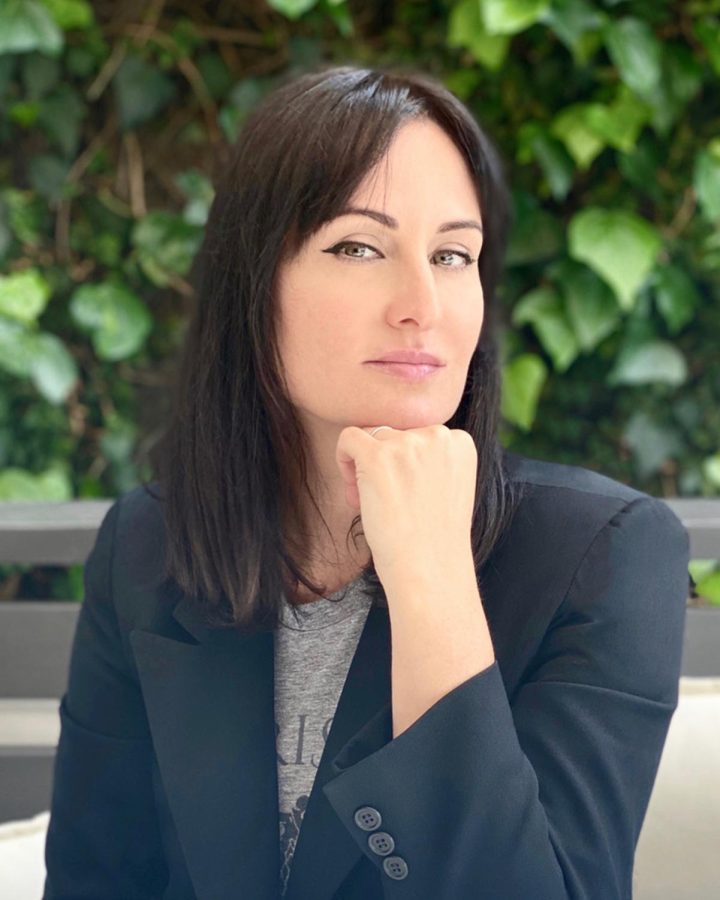Sperber Prize Presented to Two Recipients for the First Time
Kerri Greenidge and Lesley M. M. Blume will be honored at a virtual ceremony in November
COURTESY OF KENDALL CONRAD
Lesley M. M. Blume is one of the two winners of this year’s Sperber prize with her book about John Hersey, a journalist who worked to expose information on the Hiroshima bombings.
October 7, 2021
The department of communication and media studies (CMS) awarded the Sperber Prize to its 2021 recipients Kerri Greenidge, a historian and professor at Tufts University, and Lesley M.M. Blume, a journalist, historian and author. Normally, Fordham presents the prize to only one recipient annually. This year, Greenidge and Blume split the $1,000 prize.
“We just thought why pull our hair out to try to decide between them when we could just award both of them and use the spotlight of the Sperber Prize to bring them more well-deserved attention,” Beth Knobel, associate professor of CMS and director of the Sperber Prize committee, said.
The prize was introduced in 1999 and is given in honor of Ann M. Sperber, author of “Murrow: His Life and Times,” published by Fordham University Press. The award is presented to authors of memoirs and biographies about media professionals.
Knobel has been part of the jury that decided the winner for multiple years. She became the director during the deliberations for the 2021-22 academic year after the previous director left. The jury begins by evaluating 20 to 30 submissions each year in the spring and announces the winner in early fall.
“During the judging, we noticed that few women or writers of color had won the Sperber Prize in the past, and also that very few books about female journalists had been recognized.”Beth Knobel, associate professor of CMS
There have only been two Sperber Prize recipients who were women, so Greenidge and Blume are the third and fourth women in the prize’s 20-year history. In addition, Greenidge is the first woman of color to win.
“During the judging, we noticed that few women or writers of color had won the Sperber Prize in the past, and also that very few books about female journalists had been recognized,” Knobel said. “While we judge books based on their overall contribution, I personally found it very gratifying to see two women win the Sperber Prize this year, including the first woman of color.”
Blume said she feels flattered to be in the company of Greenidge, as well as the notable past recipients.
This year the ceremony will be held virtually, with hopes to return to an in-person event next year.
“It feels great,” Blume said. “I mean, not that there have really been two women who have received it. But it feels great to be the third and the fourth.”
Blume’s book “Fallout: The Hiroshima Coverup and the Reporter Who Revealed It to the World” is a biography of reporter John Hersey, a journalist who exposed information about the Hiroshima bombings. She said the idea was conceived in 2015 when Donald Trump began to delegitimize news organizations and members of the press.
“I was so angry and disgusted by it that I knew that I wanted my next nonfiction book to be something to drive home, the importance of our free press, and the extreme importance of investigative reporting in upholding the common good,” Blume said. “So it was really a rallying cry on behalf of journalists in a moment of extreme peril that only accelerated, or evolved rather, completely during the Trump era.”
Greenidge’s book, “Black Radical: The Life and Times of William Monroe Trotter,” is a biography of the civil rights hero William Monroe Trotter, who started a newspaper in Boston and educated many people on civil and racial injustice in the early 1900s.
The Observer reached out to Greenidge for an interview, but received no response.
Usually, there is an in-person ceremony to celebrate the authors, which is attended by alumni, students, friends, and families of the authors. The ceremony presents the authors with the prize and gives an opportunity for the Fordham community to listen to the authors speak about their work.
“It’s a pleasure to have the Sperber Prize as a mechanism for bringing these amazing writers to campus,” Knobel said.
This year the ceremony will be held virtually, with hopes to return to an in-person event next year. The ceremony will be held on Nov. 3 at 6 p.m. and will be open to the public.
















